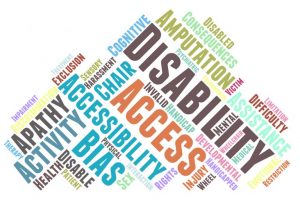Injustice Will Not Be Tolerated. Contact Our Maryland Disability Discrimination Lawyers Today

For more than 25 years the Americans with Disabilities Act (ADA) has protected individuals from employment discrimination based on a physical or mental impairment. The ADA does not just mean that an employer cannot fire or refuse to hire you because of a disability. The employer must also provide any “reasonable accommodation” that you request in order to successfully perform your job. When this does not occur, an experienced team of Maryland disability discrimination attorneys can help.
Many employers try to get around the ADA through subtle acts, such as demanding a medical examination during the hiring process or denying a promotion based on a perceived disability that the employee may not actually have. Whatever the situation, you should not tolerate any form of disability discrimination.
Disability law is quite complicated. Many employers try to get around the ADA through subtle acts, such as demanding a medical examination during the hiring process or denying a promotion based on a perceived disability that the employee may not actually have. Whatever the situation, you should not tolerate any form of disability discrimination.
At The Law Firm of J.W. Stafford, L.L.C., our highly skilled litigation team knows how to address discrimination in the workplace. The Maryland disability discrimination attorneys at our firm can help you identify discriminatory acts and work with your employer to ensure you receive any reasonable accommodation to which you are entitled under the ADA. If we cannot reach a suitable agreement, we are prepared to file a formal complaint with the appropriate regulatory agencies or sue your employer in court.
Your Employer’s Obligation to Accommodate Your Disability
The term “disability” is fairly broad. It can refer to a temporary medical condition or a permanent impairment. The critical thing, for purposes of the ADA, is that your disability “substantially limits one or more major life activities.” This can include anything from walking or breathing to a neurological or immune system disorder. It is also possible to be legally disabled based on past medical history, such as having cancer that is now in remission.
As a general rule, the ADA forbids employers from asking medical questions or requiring physical examinations before hiring a job applicant. Such requirements are acceptable only if they are applied equally to all people applying for the same type of job. The employer is not allowed to come out and ask you if you have a disability.
However, if you do need a reasonable accommodation to perform your job, the law requires you to ask and disclose your disability. You may also need to provide medical documentation. What constitutes a “reasonable” accommodation will depend on the type of disability and job. It may be as simple as allowing an employee to use a wheelchair at the office, or something more complex, including restructuring certain non-essential job functions.
Many of the disability discrimination cases our attorneys handle at The Law Firm of J.W. Stafford, L.L.C. involve disputes over whether an accommodation is reasonable and thus required by the ADA. Employers are not required to accommodate an employee if it can prove that it would create an “undue hardship” on the business. But an employer must still engage in a “good faith” interactive process with the employee to find a disability accommodation that meets the needs of all parties.
Our Maryland Discrimination Attorneys Can Help Protect Your Rights
Whether you need help engaging your employer in an interactive process or pursuing formal action if those negotiations fail, a qualified team of Maryland disability discrimination attorneys can fight to protect your rights under federal and state law. Attorney Jamaal (“Jay”) W. Stafford leads an experienced litigation team that knows how to deal with employers who refuse to follow the law. Contact the Law Firm of J.W. Stafford, L.L.C., today or call us at 410-514-6099 to schedule a consultation.

